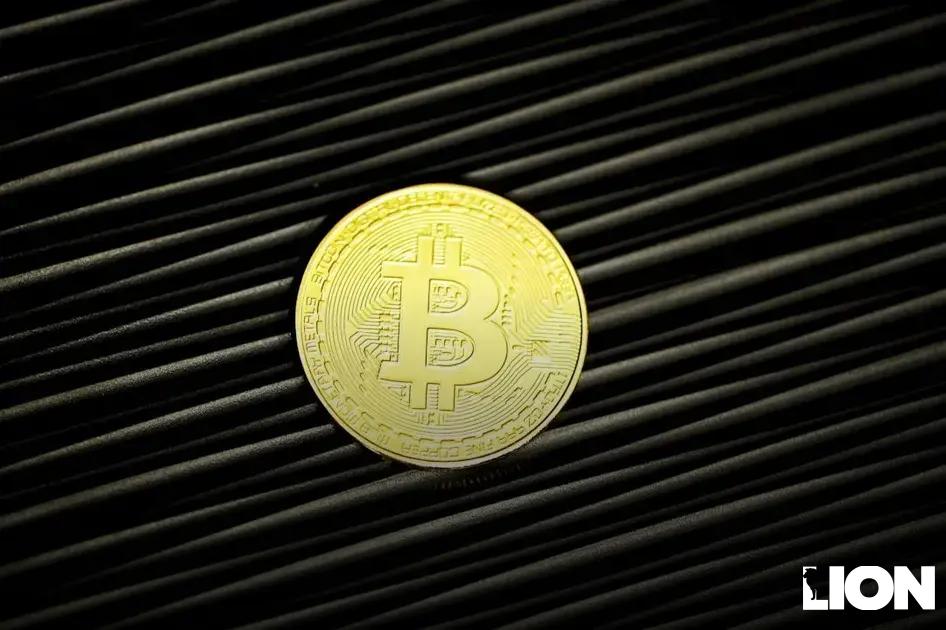Bitcoin 2025 stands at a crossroads. As the world shifts, so does the role of crypto in our lives. The increasing relevance of digital currencies, notably Bitcoin, in global conflict zones highlights its potential as digital gold. Additionally, decentralized finance (DeFi) is reshaping the financial landscape, promising new ways to safeguard and grow wealth. These elements entwine, painting a complex future for Bitcoin and the crypto realm.
The Role of Bitcoin in 2025
Bitcoin is primed to play a pivotal role in 2025 as it continues to evolve and adapt to global financial dynamics. Bitcoin’s utility in various sectors is expected to expand, especially amidst growing economic uncertainties.
Expanding on its nature as a decentralized currency, Bitcoin is becoming an integral asset in hedging against inflation and economic disturbances, thus gaining acceptance as a reliable store of value. As digital transformation accelerates, so too will the adoption of Bitcoin as an alternative investment, further solidifying its status as ‘digital gold’.
The infrastructural developments within the Bitcoin ecosystem will likely enhance scalability and transaction efficiency, making it more suitable for daily transactions. With advancements in Layer 2 solutions and cross-chain interoperability, Bitcoin is poised to operate beyond its current capacity, allowing seamless integration with traditional systems.
Given the rise of decentralized finance (DeFi), Bitcoin’s role in the financial world could become more significant as it intertwines with DeFi protocols, offering new forms of financial services. This synergy might pave the way for innovative use-cases, thereby redefining access to financial instruments globally.
Moreover, the legal and regulatory outlook is shifting, potentially offering a clearer framework that could encourage institutional investment. Greater institutional involvement might lead to an increase in Bitcoin’s market capitalization, providing unprecedented market stability.
In summary, Bitcoin’s burgeoning influence in the global economy could reshape how we perceive and use money, creating a landscape where digital assets become central to economic activities by 2025.
Crypto in Times of War

In times of war, the role of cryptocurrency can become particularly significant. Due to its decentralized and borderless nature, crypto can offer a degree of financial stability and security amidst geopolitical turmoil. Bitcoin, often referred to as ‘digital gold,’ becomes a viable option for preserving wealth when traditional currencies might falter.
During conflicts, governments may impose capital controls, limiting access to traditional banking systems. Crypto offers an alternative by providing individuals the ability to move wealth across borders without the oversight of centralized authorities. This autonomy can be crucial for those in conflict zones seeking safety and financial freedom.
Another important factor is the use of crypto as a tool for anonymous transactions. In war-torn regions, anonymity can protect individuals from surveillance and potential retribution, making cryptocurrency a safer option compared to conventional financial systems. Moreover, crypto has become a medium to raise funds for humanitarian aid or support various causes during conflicts, bypassing bureaucratic and banking barriers.
However, the potential misuse of crypto for illicit activities cannot be ignored. It’s a double-edged sword, empowering freedom and financial independence while posing challenges for law enforcement attempting to curb illegal transactions.
As technology evolves and with the onset of crypto innovations like smart contracts and decentralized finance (DeFi), the role of digital currencies in times of war is likely to expand, further influencing economic paradigms and challenging existing power structures.
Digital Gold: Bitcoin’s New Era
Bitcoin stands at the forefront of a new financial era, a digital gold reshaping the way we understand money. As traditional financial systems face challenges, Bitcoin emerges as a resilient asset. Its intrinsic properties make it a store of value, with potential to rival gold. Experts speculate that by 2025, Bitcoin’s role as digital gold will only solidify further.
With governments and institutions recognizing Bitcoin’s potential, we’re witnessing increased adoption across various sectors. Bitcoin’s scarcity combined with its decentralized nature provides a hedge against inflation and economic instability. This makes it particularly appealing in times of global turmoil when fiat currencies may falter.
The ongoing evolution of Bitcoin is also marked by technological advancements. The Lightning Network, for instance, enhances Bitcoin’s scalability, making transactions faster and more affordable. Such innovations ensure that Bitcoin remains not only relevant but also revolutionary as a digital asset.
Key factors driving Bitcoin’s position in the digital gold narrative include its transparency and security. Unlike traditional assets, Bitcoin transactions are recorded on an immutable ledger, ensuring verifiable and secure transfers. This offers peace of mind to investors seeking a secure haven for their assets.
As Bitcoin continues to captivate the financial world, discussions on its regulatory framework become more prevalent. Navigating regulatory landscapes is crucial for Bitcoin to achieve mainstream adoption. Embracing Bitcoin as digital gold could potentially transform how financial systems operate globally.
Decentralized Finance: The Future of Money

Decentralized Finance, commonly known as DeFi, is reshaping the financial landscape. In the context of Bitcoin 2025: Crypto in War, Digital Gold and DeFi Revolution, DeFi embodies the principles of financial inclusivity and transparency. This bold system removes intermediaries, such as banks, from financial transactions, providing a more direct and liberated exchange of value.
DeFi platforms operate primarily on blockchain technology, utilizing smart contracts to automate and secure transactions. This system is inherently more secure and efficient than traditional banking, reducing fees and processing times. By leveraging the power of Bitcoin and other cryptocurrencies, DeFi is democratizing financial opportunities worldwide.
With the increasing influence of Bitcoin as Digital Gold, DeFi offers innovative opportunities for investment and wealth management beyond traditional fundamentals. In this future landscape, individuals have the potential to earn interest, borrow, lend, and trade digital assets on their terms, independently from centralized control.
Furthermore, DeFi addresses the need for financial stability in unpredictable global conditions, such as economic downturns or geopolitical conflicts. In such scenarios, decentralized platforms could provide a safe haven for assets, immune to governmental interference or collapse. The rise of Bitcoin and DeFi could mark a seismic shift in how we perceive and utilize money.
As we approach 2025, the evolution of Decentralized Finance could lead to unprecedented levels of financial autonomy and innovation, bolstering Bitcoin’s role as a catalyst in this sweeping economic transformation.


 From Debt to Freedom: Eliminate Your Debt Quickly
From Debt to Freedom: Eliminate Your Debt Quickly  The Psychology of Money: Uncover Why Emotions Drive Spending
The Psychology of Money: Uncover Why Emotions Drive Spending  Investing in the Age of AI: Discover New Opportunities
Investing in the Age of AI: Discover New Opportunities